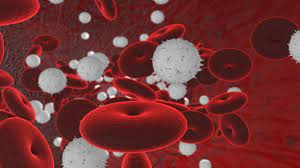How the Immune System Components and Functions Works

The immune system is a remarkable defense mechanism that safeguards our bodies from harmful invaders, such as bacteria, viruses, and other pathogens. It comprises an intricate network of cells, tissues, and organs that work in harmony to identify and neutralize threats. In this article, we’ll delve into the components and functions of the immune system, shedding light on how it operates to keep us healthy.
Immune System Key Players
1. White Blood Cells (Leukocytes)
White blood cells are the frontline warriors of the immune system. They patrol the body, identifying and attacking foreign substances. There are several types of white blood cells, including neutrophils, lymphocytes, and macrophages, each with specific roles in immune response.
2. Antibodies: The Body’s Defenders
Antibodies, also known as immunoglobulins, are proteins produced by the immune system to target and neutralize antigens – foreign molecules that trigger an immune response. They act like lock-and-key mechanisms, binding to antigens and marking them for destruction by immune cells.
3. Lymphatic System: A Crucial Network
The lymphatic system consists of lymph nodes, vessels, and fluids that help transport immune cells throughout the body. Lymph nodes serve as checkpoints where immune responses are initiated and regulated.
How the Immune System Functions
1. Recognition of Threats
When the immune system detects a foreign substance, specialized cells identify its unique characteristics. This information is then relayed to other immune cells to initiate a targeted response.
2. Activation of Immune Response
Once a threat is recognized, immune cells activate a coordinated attack. Macrophages engulf and digest pathogens, while T cells and B cells work together to destroy infected cells and produce antibodies, respectively.
3. Memory Cells: Long-lasting Protection
After an infection is cleared, memory cells are created. These cells “remember” the pathogen, allowing for a faster and more robust response if the same threat reappears in the future.
The Immune System’s Role in Health
1. Defense Against Infections
The primary role of the immune system is to defend against infections. It identifies and eliminates harmful microorganisms before they can cause significant harm to the body.
2. Surveillance Against Cancer
The immune system also plays a role in detecting and eliminating cancer cells. Natural killer cells and cytotoxic T cells identify and destroy cancerous cells to prevent tumor growth.
Factors Affecting Immune Function
1. Lifestyle and Diet
A healthy lifestyle and balanced diet contribute to optimal immune function. Nutrients like vitamin C, vitamin D, and zinc are crucial for supporting immune responses.
2. Stress and Sleep
Chronic stress and lack of sleep can weaken the immune system, making the body more susceptible to infections.
Conclusion
In conclusion, the immune system is a complex and sophisticated defense mechanism that safeguards our health. It comprises various components, each with unique functions that collectively work to identify and eliminate threats to our well-being. By understanding how the immune system operates, we can make informed choices to support its function and maintain our overall health.
FAQs
1. How does vaccination affect the immune system?
Vaccination stimulates the immune system to produce memory cells without causing illness, offering protection against specific diseases.
2. Can a weak immune system be strengthened?
While you can’t instantly boost your immune system, adopting a healthy lifestyle can help maintain its optimal function.
3. What happens when the immune system malfunctions?
Autoimmune diseases occur when the immune system mistakenly attacks the body’s own cells, leading to various health conditions.
4. Is the immune system equally effective for everyone?
The effectiveness of the immune system can vary based on factors such as age, genetics, and overall health.
5. How can I support my immune system naturally?
Consuming a nutrient-rich diet, staying hydrated, managing stress, and getting adequate sleep are key ways to support your immune system’s natural function.





